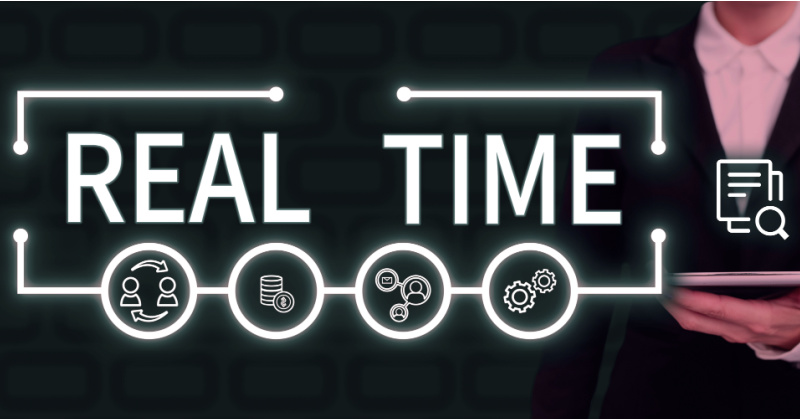A recent study by Sage states that "58% of accounting professionals look forward to adopting Artificial Intelligence within the next three years."
With a lot of development in the accounting automation space, here's one that genuinely enables and empowers accountants: real-time data feeds, your ticket to accuracy and efficiency.
Real-time feeds instantly relay information to the respective individuals when an event is triggered. This can benefit many accounting functions like cash flow management, expense management, and tax compliance. Are you interested in knowing how real-time feeds can transform your financial reporting? Let's dive in! Here are some ways real-time data feeds can impact your firm and your clients' business.
Credit Card Expense Management
If you use direct bank feeds or statement uploads to track and manage card expenses, you've dealt with laggy reporting, reconciliation delays, and missed opportunities to optimize spend or catch fraudulent transactions.
Real-time credit card data feeds transform how receipts are tracked, and credit card expenses are reconciled by instantly notifying you when your team swipes their cards for a business expense. Using this data, you can use tools that prompt employees for receipts, auto-match them to the correct transactions, track and predict spend, and more. This saves time and helps close the reconciliation process faster and more efficiently.
Tax Compliance
We get it—tax season is a headache. Manually monitoring transactions, calculating taxes, ensuring regulatory compliance, preparing audit reports, and documenting everything is painful. But there's no going around it. Throwing more heads at the problem will not solve it either - you need to adopt newer technologies to simplify the entire process.
Real-time data feeds can offer you the most updated financial information, ensuring accuracy in reporting and reducing the risk of errors. Automating it streamlines data entry, speeds up analyses, detects potential anomalies, and adapts to regulatory changes instantly. It's your ticket to smarter decisions and less tax season stress.
Cash Flow Management
You’re expected to make critical decisions for your clients based on their revenue, expenditure, risk factors, and other data points. Based on these numbers, you’re also likely to scale or slow down processes. How can you do this without the most accurate, up-to-date information?
With the help of real-time data feeds, you can make more informed decisions around cash flow, budgeting, and more. Having access to the most accurate data can position you better to navigate the dynamic business environment. It enables you to identify and capitalize on new opportunities while mitigating risks. Stay current on the latest trends and developments to ensure your business is always one step ahead.
Financial Analysis
The traditional way of analyzing your financial data involves gathering data in massive spreadsheets, analyzing multiple statements separately, and managing risk manually. This becomes a painstaking task that just can't be ignored.
Real-time data feeds are like having a direct line of sight into your company's financial health. This visibility allows you to identify trends and patterns as they happen so you can make informed decisions that keep your business on track. You can turn your financial analysis from reactive to proactive, giving you the power to steer your business towards success.
Why Should Your Business Consider Real-Time Data Feeds for Financial Reporting
- Easier to manage corporate card expenses: If your business issues corporate cards to employees, having access to real-time data makes it easier to know what and where your employees are spending. This ensures they stay within budgets and streamline your reconciliation process.
- Improved decision-making: Managing the finances of a business is a day-to-day affair with very little room for error. Real-time data helps you make informed decisions based on the most recent financial information.
- Enhanced accuracy and forecasting: Using real-time data over static reports has many advantages. It eliminates the need for manual data entry, reduces human errors (which accounts for inaccurate reporting), and provides up-to-the-minute financial insights.
- Increased efficiency and productivity: When you streamline financial reporting by automating it, you eliminate manual entry and free up time to focus on more strategic tasks. This can directly impact the growth of your organization.
- Reducing compliance issues and fraud: You can detect discrepancies and intervene immediately with real-time data feeds. This hands-on approach keeps you in the loop and ensures you're on top of regulations, making it harder for suspicious activities or fraud to slip by.
- Easier to prepare for tax season: No more sifting through outdated records—real-time data feeds ensure accurate entries and reduced errors. With the most up-to-date information, navigating tax laws becomes more manageable, and you will be better prepared for a more efficient tax season.
Real-time data feeds are more than just a buzzword; they're a revolutionary force in financial reporting and analysis. There are cutting-edge tools that harness real-time data feeds to automate accounting tasks like financial reporting and expense management.
These tools unlock a world of accuracy, efficiency, and informed decision-making, putting you firmly in the driver's seat of your company's financial future.
.png?width=150&height=63&name=TWRlogo-regmark_blueblack%20(1).png)
.png)










Do you have questions about this article? Email us and let us know > info@woodard.com
Comments: